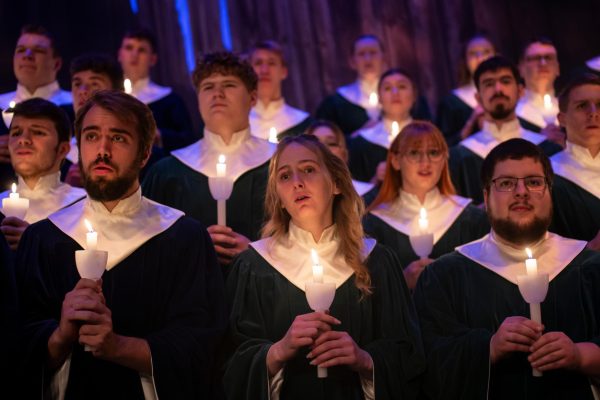The new SuperWhoLock for the next chronically online generation
Growing up, I had unrestrained access to the internet. While some of my peers spent these formative years discovering the deep, dark depths of the internet — messing with grown men in chat rooms or discovering the allure of internet porn — I was learning how to navigate Tumblr’s tagging system and the art of curating a semi-successful niche blog about serialized Chinese web novels. At the time in 2014, there were three fandoms that were considered the pinnacle of fan culture: “Supernatural”, “Doctor Who” and “Sherlock” (the BBC version). If you participated in one, you were also likely to participate in the other two. Thus the combined name SuperWhoLock was born.
Every post had a “Supernatural” reaction GIF tacked on the end, every writer a Tardis profile picture, and every sarcastic comment was superimposed on a screencap of Sherlock Holmes. Within this chaos, derivative fanworks and thoroughly-researched theories were made that focused most heavily on potential romantic (and often homosexual) pairings between the characters. The two big ones that stick out in my mind are Castiel/Dean Winchester from “Supernatural” and Sherlock Holmes/John Watson from “Sherlock”. However, this often wasn’t just wishful thinking done by fans.
The showrunners and writers were using a tactic known as queerbaiting: a marketing technique for fiction and entertainment in which creators hint at, but then do not depict, same-sex romance or other LGBTQ+ representation. Queerbaiting is harmful for a number of reasons. It capitalizes on the isolation many in the LGBTQ+ community feel due to the lack of representation in the media. It also perpetuates stigmas around LGBTQ+ relationships by implying that these stories are not good enough, or not worthy enough, to be shown in popular media.
As two of the big three, “Supernatural” and “Sherlock”, have ended, their impact in fandom spaces has begun to wane. The loss of the unified SuperWhoLock community has created a vacuum, a vacuum that I propose should be filled by a new big three: “Good Omens”, “What We Do in the Shadows” and “Our Flag Means Death”. These three are already showing their potential to create strong fandoms with passionate fans (although “Good Omens” has had a bit more time to do this with its 90s publication date). They’ve got everything a chronically online community would love. “Good Omens” is about an angel and a demon, “What We Do in the Shadows” is a mockumentary on vampires and “Our Flag Means Death” is a retelling of the mythos of Black Beard, the pirate.
From a story perspective, they hit all of the stops fans loved about the previous big three. There are supernatural elements, sarcastic characters, and meme-able moments. However, there is one element that the new big three have that the old didn’t: canon LGBTQ+ representation in the main cast of characters. For example, in episode nine of “Our Flag Means Death”, Black Beard and the Gentleman Pirate Stede Bonnet (portrayed by Taika Waititi and Rhys Darby, respectively) share an on-screen kiss and mushy declarations of admiration. In “What We Do in the Shadows”, Guillermo comes out to his family as gay, and the vampires Guillermo lives with pay no mind to gender at all. Finally, in “Good Omens” the Armageddon storyline features the past and present developments of a love story between the angel Aziraphale and the demon Crowley.
While these three shows haven’t conclusively filled the shoes left behind by SuperWhoLock, I think they have the potential to. It may also be possible that SuperWhoLock was a one-time phenomenon. In any case, it is refreshing to see fandoms built on celebration of what’s on-screen rather than speculation about what will never be. I wish the next chronically online generation nothing but luck.






Kayla • Oct 23, 2023 at 5:46 pm
Lovely article. I’m certainly grateful that this new round of superwholock actually have showrunners that respect the queer community. It also shows how good chemistry is between long time actor friends, as with David Tennant / Michael Sheen and Rhys Darby / Taika Waititi. Also congrats to Tennant for managing his way into the original superwholock and this new version of it. Truly a Tumblr actor for the ages.